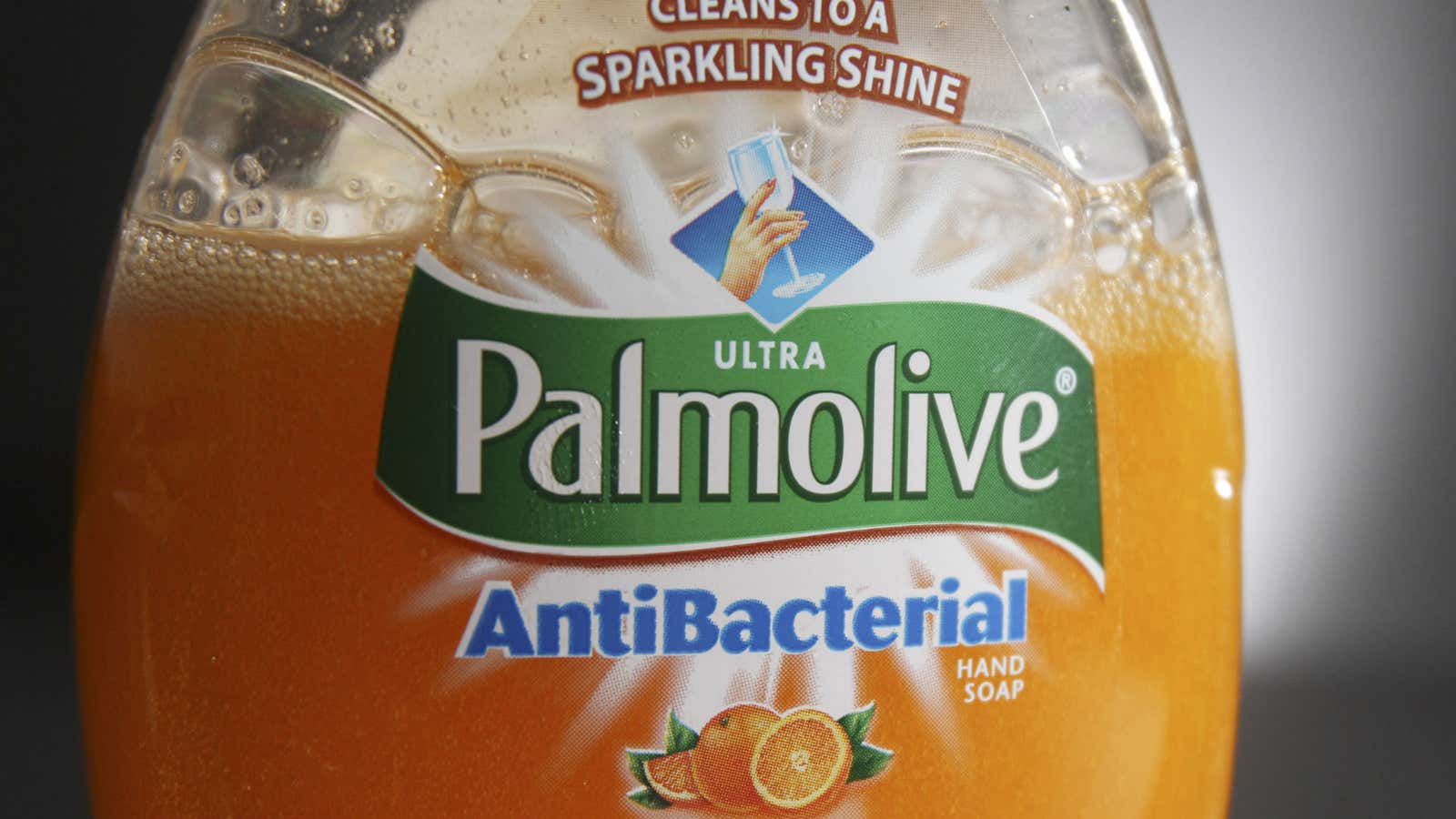Antimicrobial chemicals, intended to kill bacteria and other microorganisms, are commonly found in not just soaps, but all kinds of products—toothpaste, cosmetics, and plastics among them. There is evidence that the chemicals aren’t always effective, and may even be harmful, and their ubiquity means people are often continually exposed to them.
One such chemical, triclosan, has previously been found in many human bodily fluids. New research found traces of triclosan, triclocarban, and butyl paraben in the urine of pregnant women, and the cord blood of newborn infants.
The research looked at the same population of 180 expectant mothers living in Brooklyn, New York, most of Puerto Rican descent. In a study published last week in Environmental Science and Technology, researchers from Arizona State University (ASU) and State University of New York’s (SUNY) Downstate School of Public Health found triclosan in 100% of the women’s urine samples, and triclocarban in 87% of the samples. Of the 33 cord blood samples they looked at, 46% contained triclosan and 23 percent contained triclocarban.
In another, still-unpublished study, the researchers found that all of the cord blood samples contained “at least one paraben,” according to Dr. Rolf Halden, director of ASU’s Center for Environmental Security. Halden authored the study along with Dr. Laura Geer of SUNY, Dr. Benny Pycke of ASU, and others.
Triclosan and triclocarban are endocrine disruptors, Halden explains. The risk there is that the chemicals can mimic thyroid hormones, potentially disrupting the metabolism and causing weight gain or weight loss. Previous research has also shown a connection between higher levels of triclosan in urine, and allergy diagnoses in children.
In the study looking at butyl paraben, the researchers found an association between higher exposure to the chemical, and a smaller head circumference and length of babies after they were born.
The thing about antibacterial soaps (containing triclosan and triclocarban), is that there’s no evidence they are any better at keeping people from getting sick than regular old soap, according to the Food and Drug Administration. In Dec. of 2013, the FDA issued a proposed rule (for which public comment is now closed) that would require companies to show that their antimicrobial products are not only safe, but more effective than soap. If they can’t, they would have to remove the offending ingredients, or stop labeling the products “antibacterial.”
Butyl paraben is used as a preservative, so it’s found in a wider breadth of products, according to Halden. This isn’t entirely bad—it’s one of the chemicals that keeps things from growing in your tub of face lotion after you stick your grubby little fingers in it—but the question with any chemical is whether the benefits outweigh the risks. Antimicrobial chemicals, any potential risks to personal health aside, may also be contributing to the rise of drug-resistant bacteria.
“We are all guilty in that we buy antimicrobial products, knowingly or unknowingly,” Halden says. “We now know that both terrestrial and aquatic environments are highly contaminated. The chemicals are ubiquitous. Even if you don’t buy the products, you’ll be exposed in public places and in restaurants.”
These new studies have an admittedly small sample size, of women concentrated in one geographic area, so it’s impossible to extrapolate the results to everyone. But Halden says that he and his fellow researchers wanted to study newborns and pregnant mothers because babies’ immune systems are very sensitive to outside influences.
“People shouldn’t be too concerned,” he said, “but just exercise common sense. [Not using] antimicrobial liquid soaps, that’s the first important step, until we know more for sure, or until the regulatory agencies step in and do their work.”
